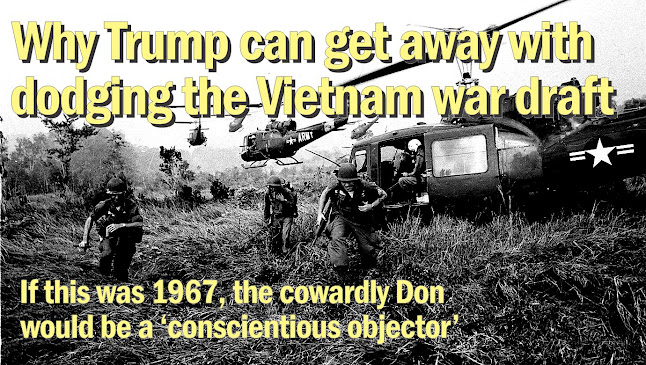Both of them tested
positive for cocaine. Police arrested
Julian for possession of 12.6 grams—I keep wondering why these weigh-ins always just barely clear the 10-gram
indictable cutoff—but would not charge him of anything having to do with Bree’s
death. After a few hours in custody, the prosecutor ordered him released
supposedly because there was not enough evidence to charge him with homicide. A dead body, CCTV footage showing them together, and
his actual presence during the discovery of the body, are all compelling evidence,
but not enough for investigators.
So it shouldn’t
be surprising that possession of cocaine and a positive test of its actual use are
not enough evidence to detain Julian beyond 36 hours, either. A day and a half—that’s
the longest time you can detain someone arrested without a warrant in his case.
Before that time runs out, the prosecutor has to indict him and—most importantly—state
on the indictment that the case is unbailable. But the prosecutor can only do that after conducting a regular
preliminary investigation. Julian’s case could not be submitted for emergency
inquest because his arrest did not fall under any of the circumstances for a valid
warrantless arrest. I know you’re confused, because he was arrested without a warrant.
Yes, he was. Under
36 hours from his arrest without a warrant, the arrest was still valid. But as
the 36-hour time limit draws near, the police had better be able to justify the
arrest and submit complete evidence to make a charge stick. Either that or they
should ask the prosecutor for more time to tidy up their work and make a more
deliberate presentation at a preliminary investigation. But in the meantime, as
the 36-hour deadline expires, the prosecutor has to order Justin released,
unless he signs a waiver stating that he, too, wishes to take part in that
preliminary investigation at the expense of remaining in detention beyond 36
hours. I never advise a client to sign a
waiver like that because with or without one it’s your constitutional right to participate
in the preliminary investigation anyway. That waiver is just one of those martial
law relics designed to protect the provocative bottoms of arresting officers.
Of course,
non-lawyers are enraged that this scion of Roberto V. Ongpin, one of the
richest oligarchs in the Philippines, is walking around free, despite the
non-bailable nature of the crime for which he was arrested. He was arrested but he was NOT indicted. He
was not indicted because he was NOT charged. In fact, he didn’t even have to post bail.
A friend of
mine laments that this is not the familiar track of events when less illustrious
suspects are involved in similar crimes. I can only agree. Usually, when the
person arrested cannot afford to hire top-flight lawyers to remind police and
prosecutors of the correct procedure, these people tend to be sloppy and cavalier about everything. “May
pang-piyansa ka ba? Isasampa na namin itong kaso” (We’re filing the
case, can you post bail? )
The ordinary
citizen doesn’t even know that the police have to release him in a short time
under the pressure of skipping a preliminary investigation. All he knows is
that in a full-blown preliminary investigation he has a sporting chance of
getting the case dismissed for a variety of reasons. Sometimes police don’t
even show up in preliminary investigations involving tons of cocaine, to say
nothing of a paltry 12.6 grams. So they happily sign a piece of paper saying they
don’t mind staying in a likely COVID-infested jail cell a few extra weeks. If they refused to sign that waiver, the case
will be filed no matter how strong or weak the evidence is but they have to
post bail regardless. That they cannot
afford so they might as well waive the detention limit to buy a regular
preliminary investigation and not an abbreviated inquest, so to speak.
This is where
Julian’s being obscenely wealthy comes in. Julian’s early release, as bitter a
taste as it leaves in the mouth, is neither anomalous nor unusual. He can
afford to post bail, which means he can
dare the prosecutor to file the case already. The prosecutor turns to the
police and asks them if they’re confident of their investigation findings and evidence
at that point already.
Put yourself
in the shoes of the police. You have only done literally a few hours of investigations,
you haven’t talked to all relevant witnesses, and the few you have talked to
have not given signed written statements yet. The lab results are not yet in,
and the autopsy hasn’t even begun. Meanwhile Julian is on his cellphone talking
to a battery of Makati lawyers with double-digit IQ’s and triple-digit incomes.
If you ask for more time, Julian walks away in the meantime. If you file a weak case that is dismissed,
Julian walks away for good. What do you do? The La Union police asked for more time to
investigate, and the prosecutor obliged
I think the prosecutor
should have filed the case, both for the drug possession and homicide. Given
the facts and evidence on hand at the time, they are both weak cases for sure. But
a prosecutor is only looking for probable cause. The rest of the evidence—lab results, autopsy report,
witnesses statements—all these will come available by the start of the trial,
which is a good several weeks away at least. If the prosecution is worried that there may
not be enough evidence to convict Julian of either crime, need anyone remind
them that all that means is he is not guilty of the crimes? We live or die with
the evidence we have. It is what it is.
When lesser
mortals run afoul of the same law, they end up languishing in detention, or
worse as stiff cadavers because “nanlaban” (put up a fight)—that’s
par for the course as police investigations in drug cases go, so best of luck to
you suing them at the ICC. It happens because the victim lacks the wherewithal
to whip up widespread public outrage or sympathy.
So far, the only
special treatment I have seen the government apply in this case is transferring
the venue of the preliminary investigation to Manila. That is special because
in criminal cases venue is jurisdictional. A crime must be investigated and
tried in the place where it happened. Finding Julian with 12.6 grams of cocaine with his dead girlfriend,
to me, doesn’t present a difficult or novel point of law that only Manila-based
forensic capability can resolve, justifying a transfer. What the optics of the
transfer move feeds though is speculation that the vast Ongpin legal resources
have greater opportunities to inform the preliminary investigation proceedings
in Padre Faura than in provincial La Union.
It will be interesting to follow
this case. Police have not released too
much information to enable us to piece together the elements of homicide, if
they are present in Julian’s overt actions around the time Bree died. In
fairness, he didn‘t flee the crime scene. That will always count in his favor. Being
a principal by direct participation is not the only way to become liable for someone’s
death. One can be liable because of indispensable cooperation, too. But it
seems the Ongpin lawyers have got that covered, developing the defense theory
that Bree committed suicide. You can
only be a principal, accomplice or auxiliary in a crime. Suicide is not a
crime, no matter if it rhymes with homicide, parricide and infanticide. So even
if Bree killed herself with Julian’s enabling assistance, that won’t make him liable.
We don’t have a special law specifically punishing assistance in a suicide.
Maybe we should. © 2021 Joel Rodriguez Dizon
NOTE FROM JOEL: Hi, folks! Recently, I started a YouTube channel which is called "Parables and Reason" It is kind of similar to this blog content-wise. You can check out my channel by clicking the link below:





No comments:
Post a Comment